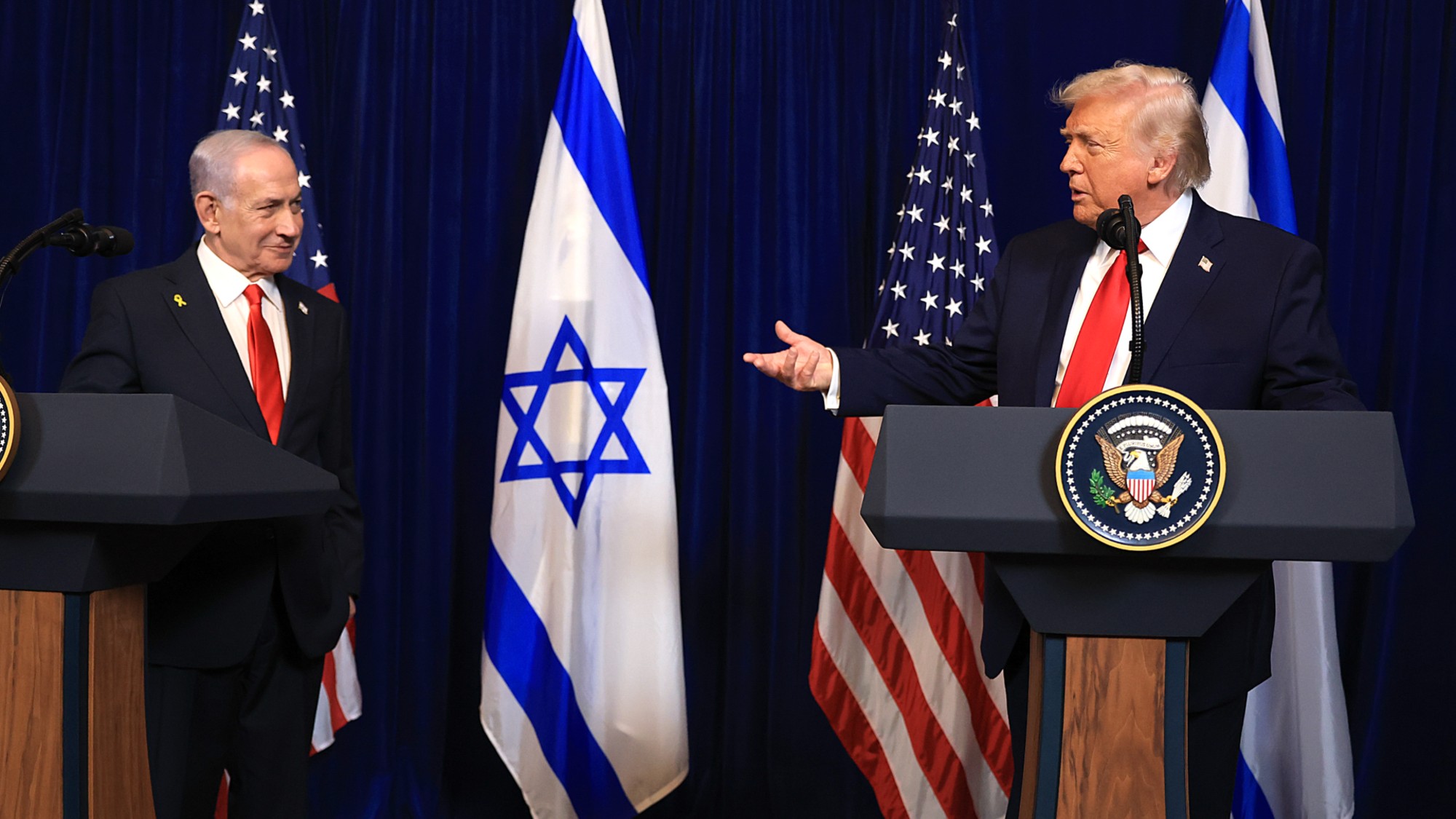How Democrats can weaponize Hillary Clinton's popular vote victory
Donald Trump's crushing popular vote loss obviously bothers him. And it should.


All newly elected presidents claim a mandate to lead the country in whatever direction they want, and in typical Donald Trump fashion, he and his team have claimed a huge one.
"We truly do believe that our president-elect has secured a mandate for leadership," Vice President-elect Mike Pence told a group of wealthy donors last week at a Heritage Foundation dinner in Trump's new hotel in Washington, D.C. "This is a historic victory." Late last month, Kellyanne Conway, Trump's senior adviser and former campaign manager, tweeted a similar conceit about Trump's Electoral College tally: "306. Landslide. Blowout. Historic." On Sunday, Trump claimed on Fox News that he won a "massive landslide victory, as you know, in the Electoral College."
These claims should be taken seriously, but not literally, as the Trump campaign might say. They need to be taken seriously because Trump won, and he will be president. But the "mandate" should be regarded as hyperbole because — not to put too fine a point on it — to call Trump's victory "historic" (in a positive sense) is to stretch the definition of the word beyond all recognition. Here's stats guru Nate Silver on that point:
The Week
Escape your echo chamber. Get the facts behind the news, plus analysis from multiple perspectives.

Sign up for The Week's Free Newsletters
From our morning news briefing to a weekly Good News Newsletter, get the best of The Week delivered directly to your inbox.
From our morning news briefing to a weekly Good News Newsletter, get the best of The Week delivered directly to your inbox.
In a historical context, Trump's Electoral College performance is decidedly below-average. So it's a bit Orwellian to call it a "landslide" or a "blowout." There have been 54 presidential elections since the ratification of the 12th Amendment in 1804. (Before that, presidential electors cast two votes each, making it hard to compare them to present-day elections.) Of those 54 cases, Trump's share of the electoral vote — assuming there are no faithless electors or results overturned by recounts — ranks 44th. [FiveThirtyEight]
A mandate is the authority to enact policy based on victory among an electorate. Nationally, the electorate gave Hillary Clinton 2.8 million more votes than it gave Trump, or 2.1 percentage points, and the counting isn't over. Clinton has already won nearly as many votes as President Obama did in 2012 — and more votes than any victorious president save for Obama in 2008 and maybe 2012. To be clear, none of this means that she won the election. Under the rules everyone agreed to play by, Trump won more electoral votes — 306 to Clinton's 232. But the big loss among actual voters obviously bothers Trump. He even concocted the absurd talking point that he "won the popular vote if you deduct the millions of people who voted illegally."
Well, it should bother him.
In reality, Trump eked out "a historically small mandate," says Aaron Blake at The Washington Post. The fact that Trump did not win a mandate "is almost so obvious that it doesn't bear stating," says Robert Schlesinger at U.S. News & World Report. "Trump is a glitch president, not a mandate president."
Going "back to 1856, the first contest pitting the two major parties against one another, Trump's 2016 win is below average on every single metric," says Phillip Bump at The Washington Post. "Trump's popular vote loss was in fact historic. Trump's loss in the popular vote was three times all previous popular vote losses from an eventual president combined. As a percentage of votes cast, Trump's margin was the second worst loss among eventual presidents over the past 160 years."
A free daily email with the biggest news stories of the day – and the best features from TheWeek.com
The obvious rejoinder to that is: So what? And it is a good point, actually. Trump will be our next president. Clinton will not be.
So here's why it matters that Trump lost a crushing popular defeat to Clinton: It is a license to say no.
Democrats in the House will have very little power, but Senate Democrats will have a chance to block Trump's more outrageous proposals — at least as long as the filibuster stands — and a handful of Republicans skeptical of various aspects of the Trump agenda (see: Russia) will wield a lot of clout. More to the point, these senators will have every right to block Trump, if they see fit. After all, America has elected its senators by popular vote since the 17th Amendment took effect in 1913 — unlike Trump, all 100 of these Senate members won more votes than their opponents.
"Mandates are ephemeral and ultimately require the assent of the defeated party," Schlesinger notes. Republicans did not assent in 2009 after Obama won 365 electoral votes, 52.9 percent of the popular vote, and nearly 10 million more votes than his Republican opponent. If Democrats, and even a few Republicans, don't buy this 46 percenter's claim to a mandate, that seems more like common sense than fighting dirty.
Peter has worked as a news and culture writer and editor at The Week since the site's launch in 2008. He covers politics, world affairs, religion and cultural currents. His journalism career began as a copy editor at a financial newswire and has included editorial positions at The New York Times Magazine, Facts on File, and Oregon State University.
-
 Into the Woods: a ‘hypnotic’ production
Into the Woods: a ‘hypnotic’ productionThe Week Recommends Jordan Fein’s revival of the much-loved Stephen Sondheim musical is ‘sharp, propulsive and often very funny’
-
 ‘Let 2026 be a year of reckoning’
‘Let 2026 be a year of reckoning’Instant Opinion Opinion, comment and editorials of the day
-
 Why is Iran facing its biggest protests in years?
Why is Iran facing its biggest protests in years?TODAY’S BIG QUESTION Iranians are taking to the streets as a growing movement of civic unrest threatens a fragile stability
-
 Bari Weiss’ ‘60 Minutes’ scandal is about more than one report
Bari Weiss’ ‘60 Minutes’ scandal is about more than one reportIN THE SPOTLIGHT By blocking an approved segment on a controversial prison holding US deportees in El Salvador, the editor-in-chief of CBS News has become the main story
-
 Has Zohran Mamdani shown the Democrats how to win again?
Has Zohran Mamdani shown the Democrats how to win again?Today’s Big Question New York City mayoral election touted as victory for left-wing populists but moderate centrist wins elsewhere present more complex path for Democratic Party
-
 Millions turn out for anti-Trump ‘No Kings’ rallies
Millions turn out for anti-Trump ‘No Kings’ ralliesSpeed Read An estimated 7 million people participated, 2 million more than at the first ‘No Kings’ protest in June
-
 Ghislaine Maxwell: angling for a Trump pardon
Ghislaine Maxwell: angling for a Trump pardonTalking Point Convicted sex trafficker's testimony could shed new light on president's links to Jeffrey Epstein
-
 The last words and final moments of 40 presidents
The last words and final moments of 40 presidentsThe Explainer Some are eloquent quotes worthy of the holders of the highest office in the nation, and others... aren't
-
 The JFK files: the truth at last?
The JFK files: the truth at last?In The Spotlight More than 64,000 previously classified documents relating the 1963 assassination of John F. Kennedy have been released by the Trump administration
-
 'Seriously, not literally': how should the world take Donald Trump?
'Seriously, not literally': how should the world take Donald Trump?Today's big question White House rhetoric and reality look likely to become increasingly blurred
-
 Will Trump's 'madman' strategy pay off?
Will Trump's 'madman' strategy pay off?Today's Big Question Incoming US president likes to seem unpredictable but, this time round, world leaders could be wise to his playbook
